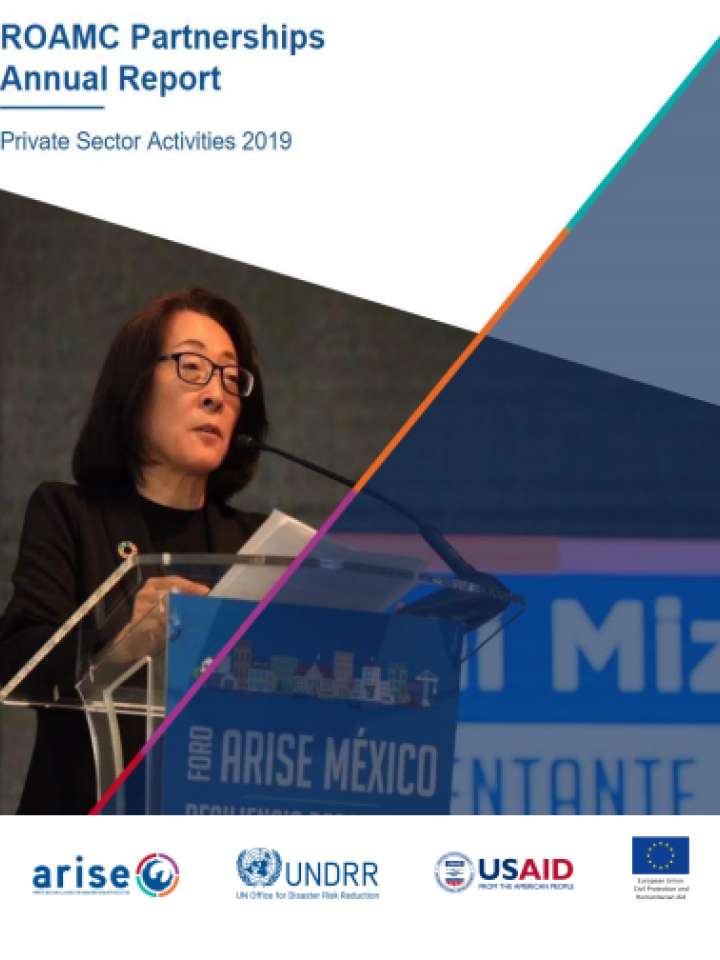ROAMC Partnerships Annual Report 2019
The Sendai Framework for Disaster Risk Reduction 2015-2030 emphasizes the need to establish public-private partnerships for disaster risk reduction to better address the socioeconomic impacts of disasters. The private sector can support disaster risk reduction by developing contingency plans, ensuring business continuity and improving disaster preparedness. Therefore, the United Nations Office for Disaster Risk Reduction for the Americas and the Caribbean (UNDRR - ROAMC) works in promoting the Private Sector Alliance for Disaster Resilient Societies (ARISE), while engaging other private sector actors and sub-regional organizations in strengthening resilience. The partnerships of UNDRR ROAMC with ARISE in the region has served for three main purposes:
• Advocacy and raising interest among private sector actors
• Continuing capacity building activities through Business Continuity Plans, Training of Trainers (ToTs) and development of DRR Action Plans workshops.
• Embedding ARISE principles in regional structures, such as with CARICHAM, IntegraRSE and the partnerships with Inter-Governmental Organisations.
Consequently, during 2019, UNDRR launched five new National ARISE Networks, one subregional network, as well as supported the development of DRR plans at the national and regional levels with new and existing ARISE focal points.
Also, capacity building activities were conducted in Costa Rica, Trinidad and Tobago, Haiti, and Saint Lucia, including one regional workshop for the CARICHAM, and two sub-regional Training of Trainers workshops on Business plans for Disaster Risk Reduction (DRR). The Training of Trainers workshops took place in Martinique for the Creole-speaking countries in the Caribbean and a second one was a sub-regional public-private training for the Central American ARISE Focal points and the Central American Integration System (SICA) through our strategic partner CEPREDENAC. In total UNDRR 484 trained people.
Similarly, one Peer to peer learning activity was strengthened though the launch of a Good Practices Call for the Private Sector in DRR and a web platform where 15 countries have documented in an interactive map. The web page is available in English, Spanish and French.
Finally, UNDRR organised one private sector Regional Forum in Mexico where at least twelve others ARISE networks from the whole continent participated. This event helped to highlight UNDRR´s achievements in engaging the private sector in the region.
Explore further
